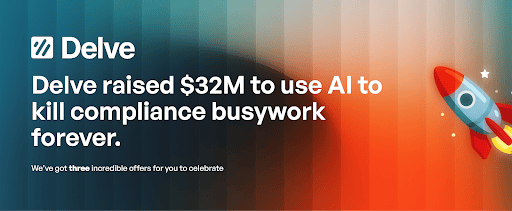- Dev Notes
- Posts
- OpenAI Releases Two New Open-Weight Language Models
OpenAI Releases Two New Open-Weight Language Models
PLUS: NASA Lays Out New Rules for the Post-ISS Era


Good Morning! OpenAI just dropped two open-weight models and they’re surprisingly capable, even on edge devices. NASA, meanwhile, is handing over the future of space stations to the private sector, shifting from landlord to renter. And if you’re working in JavaScript, JSON.stringify just got a massive speed boost in V8, no changes needed on your end.
OpenAI Releases Two New Open-Weight Language Models

OpenAI just released two open-weight language models, gpt-oss-120b and gpt-oss-20b, targeting developers who want more control, flexibility, and cost efficiency. Unlike the usual closed models, these are fully downloadable, customizable, and Apache 2.0 licensed.
Their goal with these models is to focus on reasoning models. gpt-oss-120b runs well on 80 GB GPUs and matches o4-mini on core benchmarks. gpt-oss-20b is optimized for lower-latency or local setups which includes edge devices with just 16 GB of memory and shows similar performance to o3-mini.
Technical highlights:
Models are available on Hugging Face, quantized in MXFP4
gpt-oss-120b supports production-scale tasks; gpt-oss-20b is edge- and latency-friendly
Compatible with OpenAI’s Responses API and agentic workflows
Includes chain-of-thought support and safety optimizations
Partners: Azure, AWS, Vercel, llama.cpp, Fireworks, LM Studio, and more
Microsoft is also rolling out GPU-optimized versions of gpt-oss-20b for Windows.
OpenAI says the goal is to support a healthier open model ecosystem. These models don’t replace their hosted offerings, but they should giving developers more options for building, fine-tuning, and deploying on their own terms.
Read More Here
Time to change compliance forever.
We’re thrilled to announce our $32M Series A at a $300M valuation, led by Insight Partners!
Delve is shaping the future of GRC with an AI-native approach that cuts busywork and saves teams hundreds of hours. Startups like Lovable, Bland, and Browser trust our AI to get compliant—fast.
To celebrate, we’re giving back with 3 limited-time offers:
$15,000 referral bonus if you refer a founding engineer we hire
$2,000 off compliance setup for new customers – claim here
A custom Delve doormat for anyone who reposts + comments on our LinkedIn post (while supplies last!)
Thank you for your support—this is just the beginning.
👉️ Get started with Delve
NASA Lays Out New Rules for the Post-ISS Era

The end of the International Space Station is no longer a distant idea. Around 2030, NASA plans to deorbit the ISS and let it burn up over the Pacific. That means it’s officially time for the private sector to step up, and NASA is changing how it approaches commercial space station development.
This week, NASA released a new directive outlining how it will work with companies building private orbital platforms, like Vast, Axiom, and Blue Origin, to replace the ISS.
But there’s a catch: There is an immense budget pressure, and the agency is moving away from long-term cost-plus contracts in favor of milestone-driven, fixed-price agreements.
What’s New:
NASA will not operate future stations, it will rent time on them.
Private companies must handle station development, ops, and sustainment.
Funding will be focused on commercial viability and low-Earth orbit services.
NASA wants these platforms to support science, astronauts, and international partnerships — but they won’t be the landlord anymore.
For devs, researchers, and space hardware startups, this is a pretty big shift. There will be more API consumer than infrastructure maintainer.
Read More Here
JSON.stringify Just Got a Major Speed Boost in V8

If you touch JavaScript in any way, you’re using JSON.stringify whether you're serializing data to send over the wire, stash in localStorage, or log in dev tools. And now, thanks to a major revamp in V8 13.8 (shipping with Chrome 138), it’s more than 2x faster.
What’s New:
Introduced a side-effect-free fast path that skips unnecessary checks for plain objects
Split implementation for one-byte vs two-byte strings to avoid branching
SIMD and SWAR-based string scanning for escaping
",\, etc.A new Dragonbox double-to-string conversion replaces Grisu3 for number serialization
Switched to a segmented buffer system, avoiding costly reallocations
Added an "express lane" optimization using hidden class metadata for ultra-fast key serialization
The improvements apply automatically to simple, common cases (plain objects, no custom .toJSON, no pretty-printing). If you’re serializing structured data for APIs, config, or storage, you’ll likely benefit without changing a thing.
Read More Here
🔥 More Notes
Jack Dongarra on the Future of Supercomputing: The next wave of supercomputers will blend CPUs, GPUs, quantum chips, neuromorphic hardware, and even optical processing. And AI will play a more transformative role than the internet itself, but he cautions quantum computing still needs serious maturation.
Autodesk CEO: Interdisciplinary Thinking Beats Coding: Autodesk CEO Andrew Anagnost argues coding alone won’t cut it in the AI era. What’s becoming critical is systems-level, cross-disciplinary problem-solving and knowing how to harness AI agents to collaborate, not just write code. He sees software teams shifting to more integrative roles, where broad thinking outranks pure tech.
Meta Throws $250M at a 24-Year-Old AI Whiz: Meta just handed $250 million compensation package to 24-year-old AI researcher Matt Deitke, doubling an already massive offer.
📹 Youtube Spotlight

Was this forwarded to you? Sign Up Here

